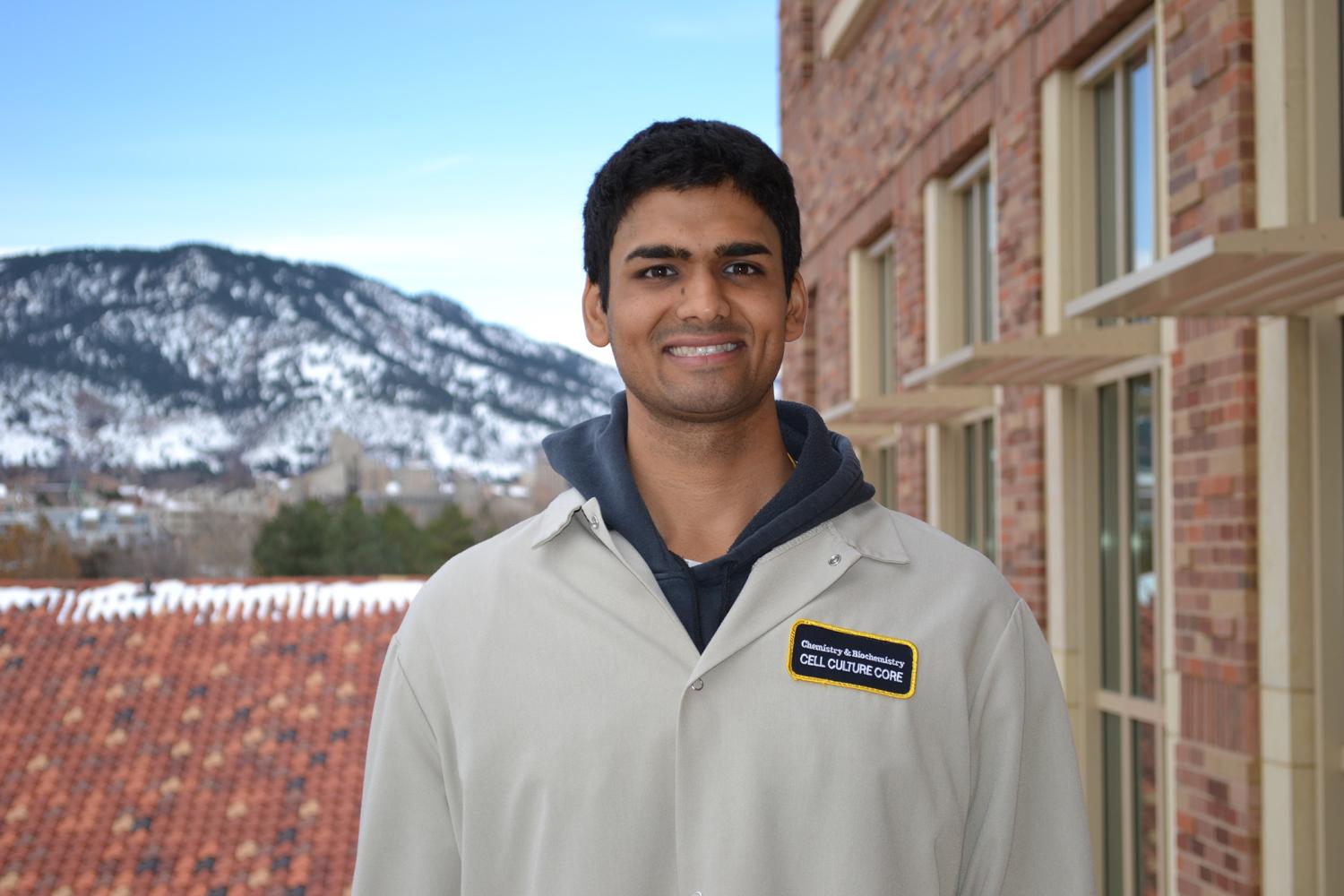Nanoly wins 2014 Tech Award

CU-Boulder startup wins Silicon Valley Tech Award for vaccine innovation that will save lives around the world
Photo: Balaji Sridhar's company, Nanoly Bioscience, recently won a Tech Award. He works in Kristi Anseth's lab as a PhD candidate in Chemical Engineering.
Balaji Sridhar is a Chemical Engineering PhD candidate at the University of Colorado Boulder. He is halfway through two years of the Medical Scientist Training Program that is a joint effort between CU campuses in Denver and Boulder, and he will head back to medical school after receiving his PhD degree. He is also leading a company that aims to save millions around the world who die from vaccine-preventable diseases. Sridhar is headed home after a week-long stay in Silicon Valley where he accepted the Katherine M. Swanson Young Innovator Award for his company, Nanoly Bioscience, Inc. The Tech Awards, given by The Tech Museum of Innovation, honors innovators from around the world who are applying technology to benefit humanity, and Sridhar is already working toward that goal.
The World Health Organization estimates that 2.1 million people die each year from vaccine-preventable diseases. In addition, a significant fraction of vaccines never make it to patients due to temperature spoilage. Nanoly Bioscience is working to bypass the vaccine “cold chain,” which is a refrigerated system of transporting and storing vaccines within the narrow temperature range of 35 to 45 degrees Fahrenheit. The strict temperature limitations are necessary to prevent vaccine proteins from denaturing, rendering the vaccines inactive. Keeping vaccines at a certain temperature restricts their ability to be delivered to remote areas of the world where there is no electricity or refrigeration – areas that could benefit from vaccines the most.
“We are developing a polymer that can be blended with vaccines to prevent spoilage without refrigeration,” says Sridhar. “The polymer is non-toxic, and exposure to light will disassemble the polymer so that the vaccine is ready for delivery."
Nanoly was one of ten teams from around the world selected for the Tech Awards. Each team receives cash prizes from the awards’ major sponsors and Sridhar also spent part of the week meeting with mentors and venture capital investors about the company’s vaccine polymer.
BioFrontiers’ Associate Director, Kristi Anseth, a Distinguished Professor of Chemical and Biological Engineering and a Howard Hughes Medical Investigator, is one of four advisers for Nanoly Bioscience. The company nucleated in Anseth’s lab in the Jennie Smoly Caruthers Biotechnology Building at the University of Colorado in Boulder. Anseth continues to support the scientific development of the new company.
“Nanoly is a great example of what we are trying to do in my lab, at BioFrontiers and in this building,” says Anseth. “We want to empower scientists to work across disciplines, give them access to technology and resources, and support their entrepreneurial work. This is a new way of bridging the gap between academics and industry, one that engages students and enables them to pursue independent ideas, so that we can get technologies like this one out into the world faster.”
More information on Nanoly Bioscience, Inc. can be found on their website or on Twitter.

